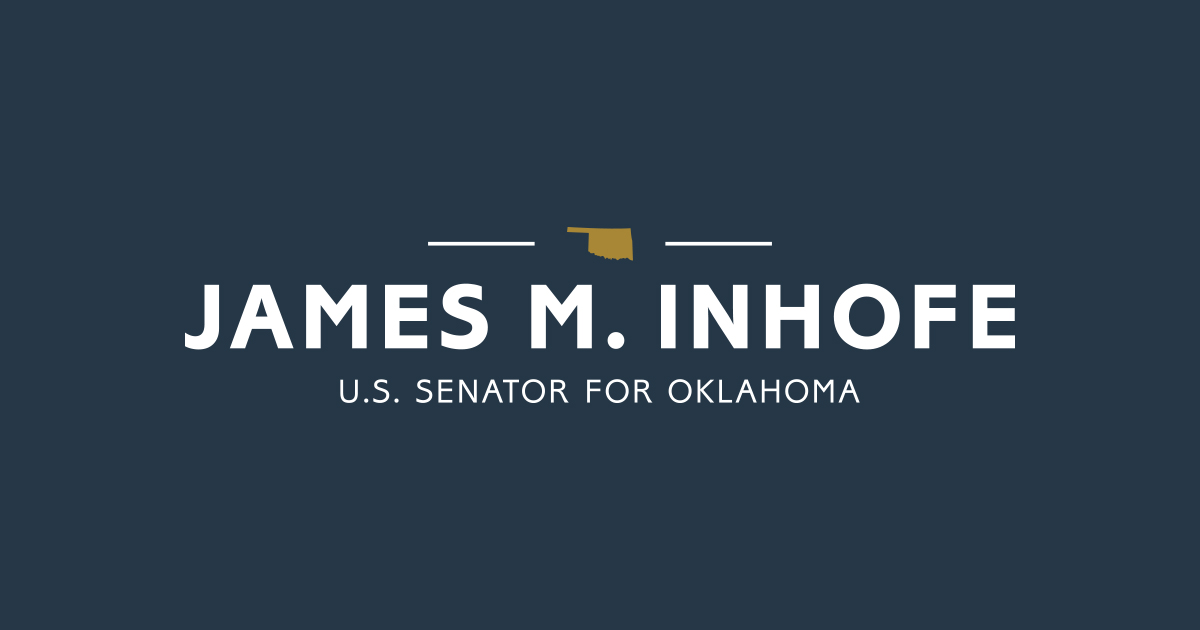Source: United States Senator for Oklahoma James Inhofe
U.S. Sen. Jim Inhofe (R-Okla.) introduced three bills this week to support the aviation community ahead of this year’s AirVenture Oshkosh.
“As a pilot with more than 11,000 flight hours, I know the value aviation brings to our economy and to our nation,” Inhofe said. “That’s why I have introduced three bills to support the general aviation community by prioritizing investment in hangars, training the next generation of aviation professionals and providing regulatory certainty for flight instructors. America’s aviation community is vital to our nation and I am proud to fight for their priorities in Congress. I look forward to working with pilots in Oklahoma and across the country to get these bills signed into law.”
S. 2453, PLANE Act
The PLANE Act would empower the voices of pilots, invest in airport infrastructure and ensure more opportunities for a trained aviation workforce.
This legislation enhances legal protections for pilots that must contend with the federal bureaucracy, requires additional transparency when FAA makes decisions impacting aviation stakeholders and promotes investment at general aviation airports—the backbone of our national aviation system. It would also secure the future of aviation by ensuring the air traffic controllers and FAA designees that our aviation community depends on have access to needed opportunities for training and development.
This bill would provide the opportunity for general aviation airports to be designated disaster relief airports, so they can better support community disaster response and recovery efforts. Finally, all aviation user fees should go to support the aviation community, and this bill would correct the diversion of aviation fuel taxes that supports non-aviation infrastructure.
Sen. Angus King (I-Maine) introduced this bill alongside Inhofe.
Full text of the PLANE Act can be found here and a stakeholder letter of support can be found here.
S. 2458, Certainty for General Aviation Pilots Act
The Certainty for General Aviation Pilots Act provides certainty that pilots engaged in flight training and flight testing are not considered as “carrying persons or property for compensation or hire.”
FAA has recently reinterpreted long standing policy related to flight training. Because of this change, pilots now face additional burdens having to comply with new bureaucratic steps to fly aircraft tomorrow that they were able to fly yesterday. The directive also imposes new barriers for owners seeking instruction to fly aircraft they purchase and actively discourages qualified flight instructors from providing training to pilots.
This bill fixes this misguided FAA directive that will require thousands of experimental aircraft owners to jump through needless bureaucratic hurdles before offering flight instruction. By removing new and unnecessary regulations, pilots can safely get back to the skies.
Original cosponsors of this bill include: Sens. John Boozman (R-Ark.) and Angus King (I-Maine).
Full text of the Certainty for General Aviation Pilots Act can be found here and a stakeholder letter of support can be found here.
S. 2459, HANGARS Act
The HANGARS Act would fund $1 billion in hangar improvements at general aviation airports across the country to address growing aircraft hangar shortages and to support economic development for rural communities.
In 2020, there were over 19,000 general aviation airports in the United States, compared to just 519 certificated airports, each with significant impact to the local community and each with a hangar. Hangars don’t just allow owners to store their aircraft, they attract new businesses and generate additional revenues for small airports and surrounding communities. Airports with businesses located on airport grounds and leasing land have a 10-fold increase in economic activity compared to airports without businesses located on their grounds.
The HANGARS Act would create a discretionary grant program within the FAA to fund hangar construction and improvements at general aviation airports to bring economic opportunity to thousands of airports across the country.
“Demand for hangar space at general aviation airports outstrips supply resulting in long waiting lists and high prices,” said Jack Pelton, President and CEO of the Experimental Aircraft Association. “This high demand for storage of active airworthy aircraft often results in pressure from airport sponsors and management on pilots completing amateur-built aircraft or restoration projects to vacate their hangar. These important aeronautical uses of hangar space support one of the few growth segments of general aviation and deserve the same consideration as other aircraft storage. EAA strongly supports the HANGARS Act and its effort to make funds available for general aviation airports to rapidly and cost-effectively develop new hangar capacity allowing room for all aeronautical activities and potentially reducing costs driven by long-standing supply imbalances.”
“Today, over 70% of airports in the United States have a hangar waiting list for pilots and aircraft owners,” said Mark Baker, President and CEO of the Aircraft Owners and Pilots Association. “The HANGARS Act will go a long way in addressing this shortage and will ensure thousands of general aviation airports remain vibrant.”
Full text of the HANGARS Act can be found here.
